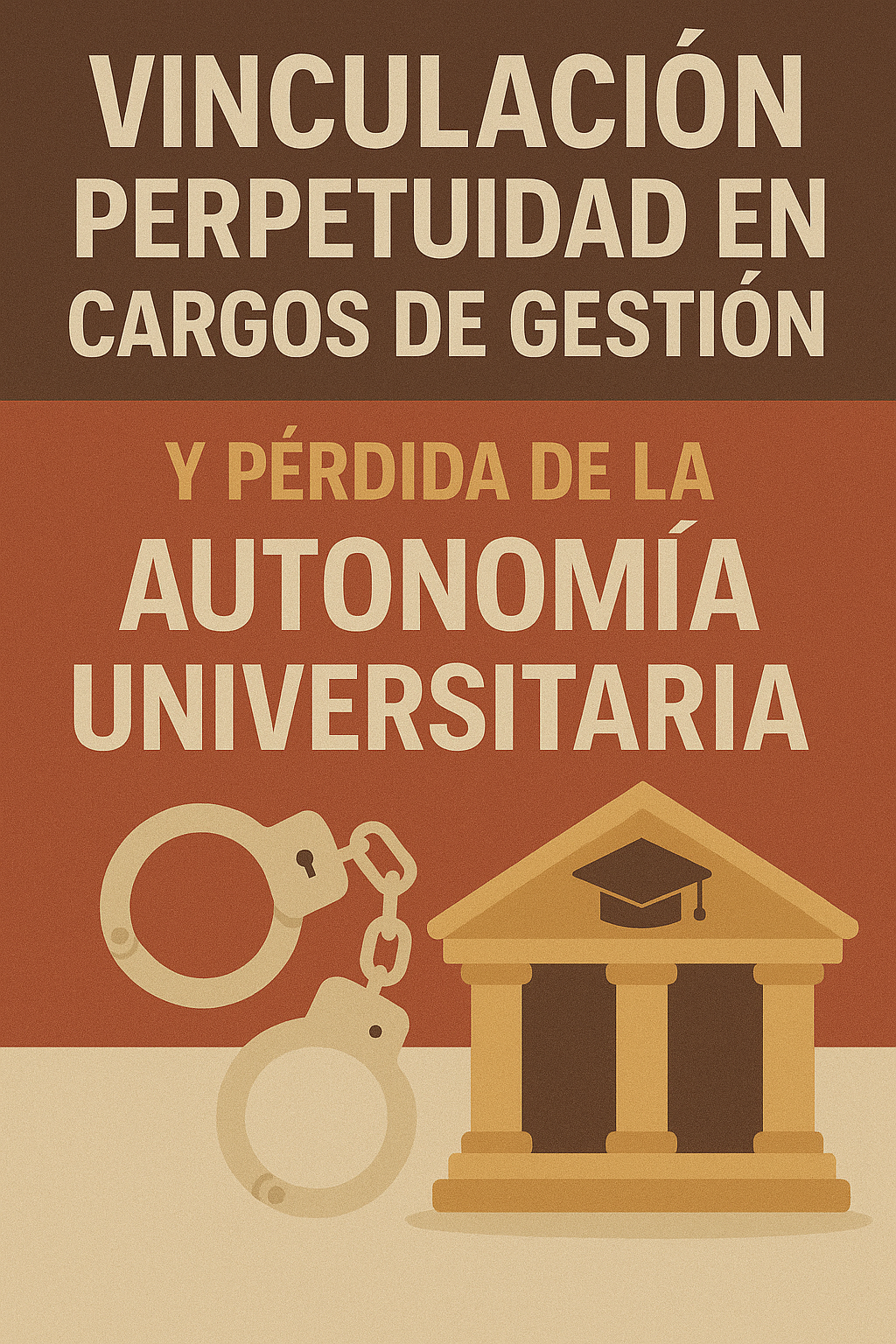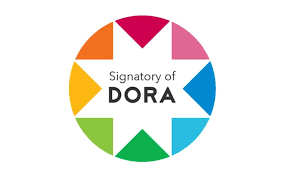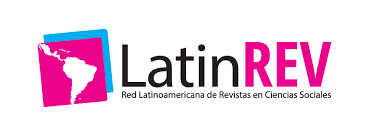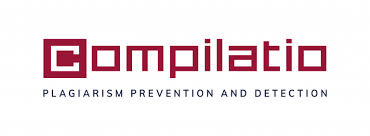Vinculación perpetuidad en cargos de gestión y pérdida de la autonomía universitaria
DOI:
https://doi.org/10.56124/sapientiae.v8i18.009Palabras clave:
autonomía universitaria, autosostenibilidad, gestión, perpetuidadResumen
Este estudio de tipo hermenéutico-fenomenológico, pretende contribuir al debate para develar respuestas, sobre los efectos de la perpetuidad en los cargos de gestión universitaria ante las acciones negativas del Ejecutivo Nacional de la República Bolivariana de Venezuela, entre ellas: el desconocimiento de la Autonomía Universitaria y trabas para la renovación de autoridades, como se establece en el marco legal. Considerando que las universidades, como entes sociales no pueden desprenderse de su comportamiento sistémico, al estar integradas por personas que establecen relaciones como un proceso natural en su funcionamiento. Luego, la perpetuidad en los cargos directivos es un factor entorpecedor para una gestión eficiente, que sumado a la pérdida de la autonomía traen obstáculos para el cumplimiento de las metas. Sin embargo, la gestión depende de la aplicación de principios gerenciales en un clima organizacional que favorezca el desarrollo personal y profesional de sus integrantes, la comunicación asertiva, el reconocimiento del ser humano y de sus necesidades existenciales; entonces para garantizar estas acciones, es necesario una gestión orientada bajo una concepción de lograr la autosostenibilidad.
Descargas
Citas
Aula Abierta Venezuela. (2019). Violaciones a la libertad académica, autonomía universitaria y otros derechos de los universitarios en Venezuela. (Informe Preliminar). Caracas, Venezuela. https://n9.cl/h712ky
Barradas, M., Delgadillo, R., Gutiérrez, L., Posadas, M., García, J., López, J. y Denis, E. (2018). Estrés y burnout: Enfermedades en la vida actual. Bloomington, Estados Unidos: Palibrio. https://n9.cl/om2wy
Cardozo, R. (09 de enero de 2024). Gobierno de Venezuela, asfixia a la autonomía universitaria. https://n9.cl/lzplk
Coffey, A. y Atkinson, P. (2003). Encontrar el sentido a los datos cualitativos. Estrategias complementarias de investigación. Antioquía, Colombia: Universidad de Antioquía.
Fuenmayor, L. (2008). Autonomía universitaria y reforma constitucional. Revista Educere. 12 (40), 118-126. https://saberula.ve/handle/123456789/20226
Gadamer, H. (1984). Verdad y método: Fundamentos de una hermenéutica filosófica. Salamanca, España: Sígueme. https://n9.cl/e9xpuo
González, F. (2007). Investigación cualitativa y subjetividad. Los procesos de construcción de la información. Santiago de Guatemala, Guatemala: ODHAG. https://n9.cl/2bm15
Gutiérrez, R. (2007). ¿Pueden las universidades estar sujetas al principio de eficiencia en su gestión? [Ponente]. Primer Congreso Nacional e Internacional de Estudios Comparados en Educación. Buenos Aires, Argentina. htpps://www.saece.com.ar/docs/congreso1/Gutierrez.doc
Heidegger, M. (1974). El ser y el tiempo. DF, México: Fondo de Cultura Económica (FCE). https://n9.cl/59qgi
Husserl, E. (1962). Ideas relativas a una fenomenología pura y una filosofía fenomenológica. DF, México: Fondo de Cultura Económica. https://n9.cl/oysz8
Ley de Universidades. (1970). Gaceta Oficial de la República de Venezuela, 1429 (Extraordinario), septiembre 8, 1.970.
Martínez, M. (2004). Ciencia y arte en la metodología cualitativa. DF, México: Trillas. https://n9.cl/mkhsm
Márquez, J. (2008). Gerencia del Sistema de Relación Hombre-Empresa. Barquisimeto, Venezuela: Horizonte.
Ortega, G. y Freites, Z. (2017). Constructo teórico para la Gerencia Universitaria desde la perspectiva del Liderazgo Transformacional. Revista Criterio Libre. 15 (26), 23-42. https://n9.cl/pxyto
Robbins, S. y Judge, T. (2009). Comportamiento organizacional. (13era ed.). DF, México: Pearson Educación. https://n9.cl/fdd7n
Rodríguez, G., Gil, J. y García, E. (1999). Metodología de la investigación cualitativa. Colección Biblioteca de Educación. (2da. ed.). Bogotá, Colombia: ALJIBE. https://n9.cl/9ydzm
Rusque, A. (2007). De la diversidad a la unidad en la investigación cualitativa. Caracas, Venezuela: Vadell Hermanos. https://n9.cl/ljjrnw
Sabino, C. (1992). El proceso de la investigación. Caracas, Venezuela: Editorial Panapo. https://n9.cl/yjoee
Tribunal Supremo de Justicia. Sala Constitucional. Sentencia N° 0324. 27 de agosto de 2019 (RBV). https://n9.cl/0uzi9

Publicado
Cómo citar
Número
Sección
Licencia
Derechos de autor 2025 Revista Científica Multidisciplinaria SAPIENTIAE. ISSN: 2600-6030

Esta obra está bajo una licencia internacional Creative Commons Atribución-NoComercial-CompartirIgual 4.0.

2.jpg)

















